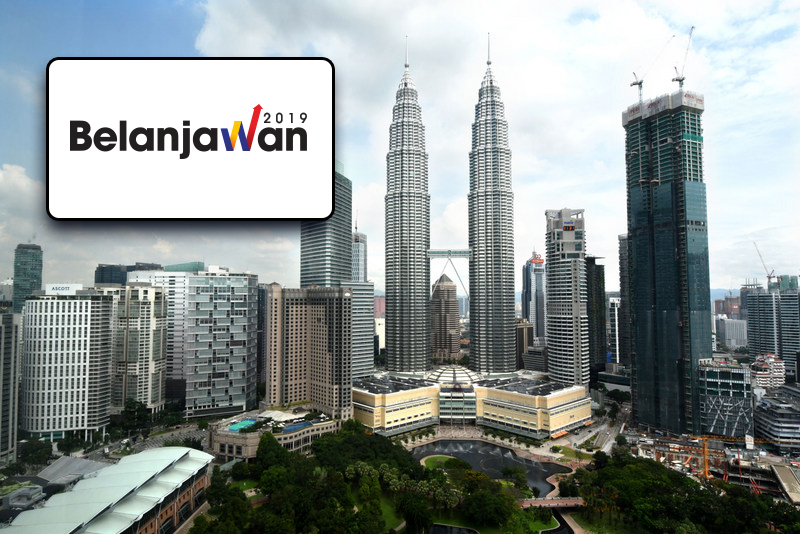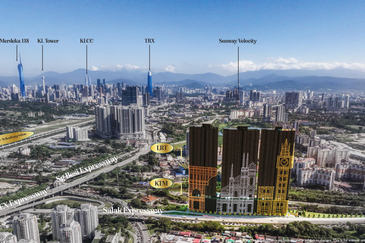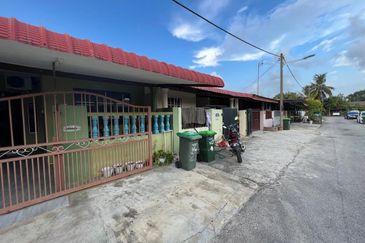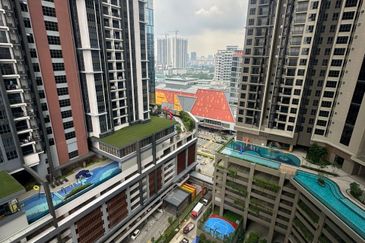
KUALA LUMPUR (Nov 5): Three years ago, when former prime minister Datuk Seri Najib Razak, who was also the finance minister, unveiled Budget 2016, many labelled it the “Robin Hood” budget — a reference to a fictional character who took from the rich to give to the poor — simply because the personal income tax rate of those in the higher income bracket was raised.
It rose from 25% to 26% for those earning between RM600,000 and RM1 million per annum in 2016, and from 25% to 28% for those earning above RM1 million. This did not please the wealthy.
While there is no income tax increase announced in Budget 2019 — the first for the new Pakatan Harapan government and unveiled last Friday by Finance Minister Lim Guan Eng, some measures appear to target the wealthy.
For example, the real property gains tax (RPGT) was increased from 0% to 5% for Malaysians the permanent residents for the disposal of properties or shares in property holding companies (on assets owned for six years and more), and the stamp duty was increased from 3% to 4% for the transfer of property valued at over RM1 million.
The tax is exempted for low- and medium-cost and affordable housing with prices below RM200,000. Interestingly, Guan Eng also said the Inland Revenue Board (IRB) will scrutinise and investigate the unexplained extraordinary wealth displayed by the possession of luxury goods, jewellery, handbags or property.
So is this an indirect way of taxing the rich, or is the new budget seeking to bridge the widening gap between the rich and poor?
Tax experts tell The Edge Financial Daily it is the latter.
“It is not a Robin Hood budget,” said PwC International Assignment Services Sdn Bhd director Lim Phing Phing.
“The proposals are pretty much aligned to the 11th Malaysia Plan, which is really to enhance inclusive development and well-being, so actually what they are trying to do is create a fairer and more equitable tax system, so that everyone can make a fair contribution to income tax, regardless of the composition of wealth, and prevent any undue tax leakages,” she told The Edge Financial Daily.
Thannees Tax Consulting Services Sdn Bhd managing director SM Thanneermalai concurs.
“People can read it as a Robin Hood tax, but it’s not actually that. It is actually a tax for the extremely wealthy, as they have probably been using tax avoidance schemes, or perhaps some of them are well-connected in the past and have not been paying their taxes because they are powerful.
“The message here is the rich and powerful will also have to pay their taxes, not just the ordinary man, and it is only fair. I would not see it as a Robin Hood tax, I would see it as bringing it to a level playing field,” he said.
Baker Tilly (Malaysia) Tax Services Partner and Asia Pacific Leader Anand Chelliah thinks the budget is wise and cleverly-crafted, given Putrajaya’s strained financial resources.
“Wise, because it needed to balance popularity and acceptance by the rakyat as a maiden budget of the new government. It defines the parameters and constraints within which it was conceived, yet is far-sighted and bold enough to take on measures to increase the targeted revenue collection, increase the planned development expenditure budget, and undertake reforms aimed at alleviating the needs of the poor and enhancing disposable incomes.
“The clever aspect comes from the manner in which it seeks re-distribution of wealth through specific taxes, [which is] more in the nature of shorter term measures like the amnesty for under-declared income, enforcement and recovery of tax from people with unexplained wealth. Robin Hood was a good guy, remember?” quipped Chelliah.
As for RPGT, Ernst & Young Tax Consultants Sdn Bhd (EY) managing partner for its Asean tax practice, Yeo Eng Ping, said there should be an element of fairness when taxing property gains, by taking adjustments for inflation into account.
“There should be considerations on how the RPGT would impact individuals. We are not talking about people who have nine or 10 properties; [for] a majority of Malaysians, it could be their only property or they invested in the property as a form of savings. They will be impacted by RPGT, as most of their gains may be inflationary in nature, so it is not right to tax them. We feel the whole RPGT regime needs to consider inflation index gains,” she said.
However, S Saravana Kumar, a partner at law firm Lee Hishammuddin Allen & Gledhill, is of the view that the increase in RPGT as well as stamp duty indicates that the new government’s budget is a Robin Hood budget. He also thinks there should have been a reduction in both personal income and corporate tax rates.
“Personal income tax rates should have been reduced so that taxpayers have higher disposable income, which can be taxed by way of consumption taxes like service tax.
“Corporate tax rates should have been lowered to make Malaysia more attractive to investors. It is also disappointing that there was no mention of tax reforms on the tax appeal process.
“There are about 900 tax appeals pending at the Special Commissioners of Income Tax and there is a perceived issue of bias as the commissioners are appointed by the finance minister,” he said.
Spotlight on unexplained, extraordinary wealth
As to how the IRB could probe the unexplained extraordinary wealth, Thanneermalai said it could involve a review of an individual’s capital statements.
PwC’s Lim thinks the government’s participation in the common reporting standard of the Organisation for Economic Co-operation and Development, which allows the automatic exchange of information on bank accounts between tax authorities at the global level, will aid investigations.
“This will help IRB form an audit or money trail with respect to money received by individuals to fund their lifestyle. Another avenue for the authorities to scrutinise is postings made by taxpayers on social media like Instagram and Facebook, such as on their holidays and shopping expeditions” she said.
However, EY partner and Malaysia tax leader Amarjeet Singh thinks the authorities need to respect taxpayers’ basic rights when conducting their investigations. “By having access to [personal] information of taxpayers, they would need to exercise their powers with fairness,” he said.
This article first appeared in The Edge Financial Daily, on Nov 5, 2018.
TOP PICKS BY EDGEPROP

TROPICANA ALAM, PUNCAK ALAM
Bandar Puncak Alam, Selangor

The Walden @ Bandar Seri Coalfields
Sungai Buloh, Selangor

Setia City Residences @ Setia City
Setia Alam/Alam Nusantara, Selangor

Vista Alam Serviced Apartment
Shah Alam, Selangor

Setia City Residences @ Setia City
Setia Alam/Alam Nusantara, Selangor

Edusentral @ Setia Alam
Setia Alam/Alam Nusantara, Selangor



















